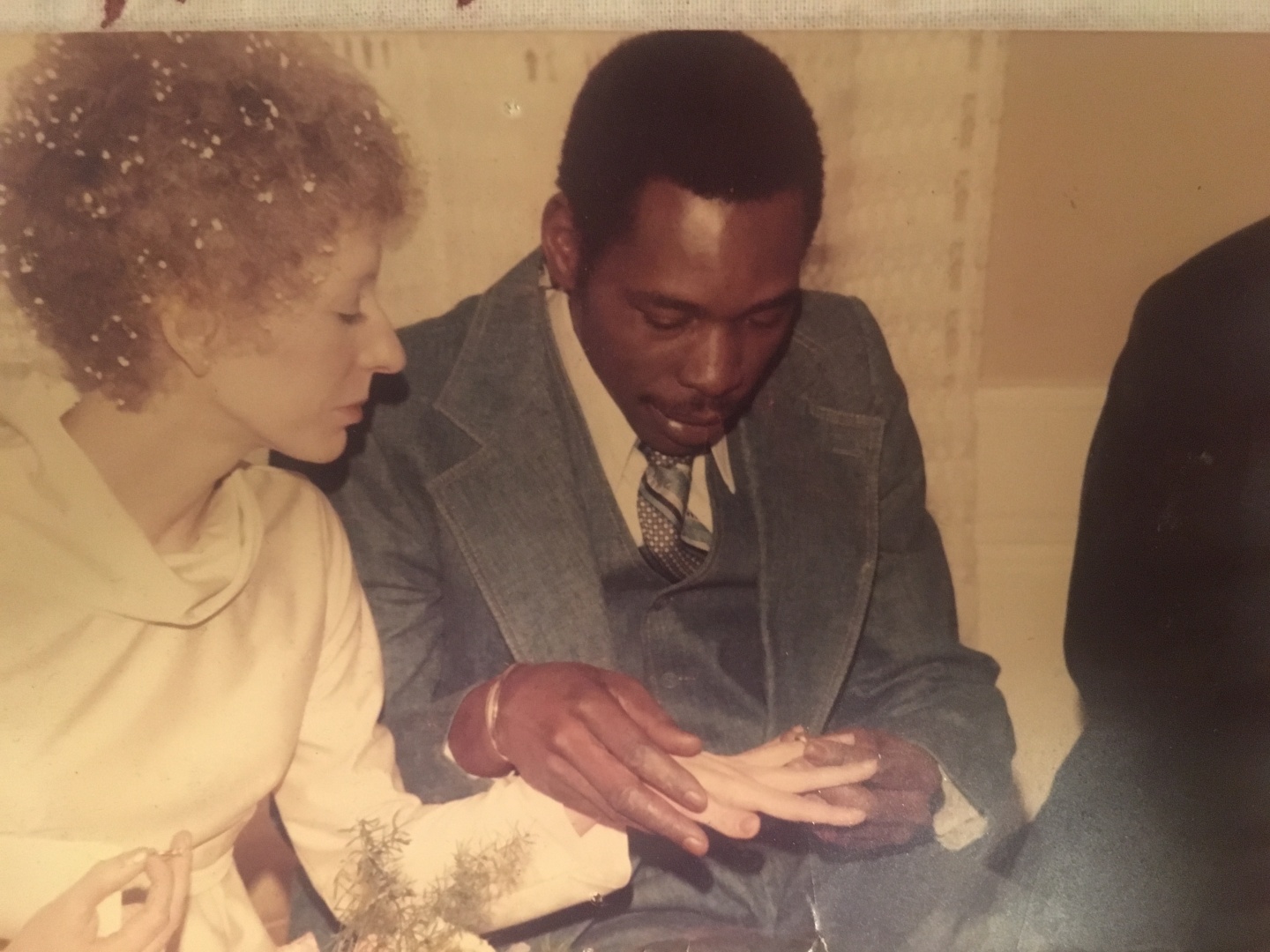Why Travel Can Never Provide Pure Escape
Searching for new meaning on trips to faraway places only brought me closer to the past.

All leavings have purpose. In 2014, poet Claudia Rankine unfurled the idea that “because white men can’t police their imagination, black men are dying.” And so, last year, a handful of friends and I decided to flee America for Morocco. We left because of the nightmares white men had started to give us. Some of us, like me, were only away from home for a few weeks. Others planned to depart indefinitely. I felt guilty leaving, because not everyone who needs to leave can, but in a way, for us, it was a form of protest.
Even arriving at the airport felt like an act of defiance and self-preservation. I recently asked the friend who planned our exodus what led her to want to leave the country. “I just wanted to evaporate. I wanted to be human,” she replied. “We wanted to breathe, and it evolved into a time of discovery.”
We hoped to feel like black aliens, strangers in a strange place, instead of like sitting ducks. We wanted to erect new meaning within our lives, and life in general. But just like those that made journeys before us, we found that we had to confront what we had tried to leave behind. I couldn’t shed my blackness anymore than I could shed my own skin.
I was born with the urge to flee imprinted on my DNA. Mine is a family defined by flight and the quest for safer terrain. We have always sought higher ground, the possibility of a better way of being. In the 1950s, my father’s mother put him on a train heading north to Philadelphia, away from the small town in South Carolina that had cared so little about her youngest boy that they’d misspelled his last name on his birth certificate.
Just like those that made journeys before us, we found that we had to confront what we had tried to leave behind.
 The author's parents in Germany in the late 1970s.
Jenna Wortham
The author's parents in Germany in the late 1970s.
Jenna Wortham
I never got to ask my father about his first impressions of living in the North — if he was disappointed to realize that racism would follow him up there, too, or how few victories he could lay claim to in his new life — but I knew that any time he could get on the road, he would. We drove up and down the coasts together. Once, we drove back to where he grew up in South Carolina. In a cotton field, he photographed relatives, one of whom wore a Malcolm X T-shirt, who’d never gotten the chance to leave. On these trips, it seemed that for him the destination was less the purpose than the drive, an eternal limbo of being in search of something else. Later, my mother told me she knew that as soon as I could, I’d go searching for something, too.
“Never to get lost is not to live, not to know how to get lost brings you to destruction,” Rebecca Solnit wrote in her 2005 book, A Field Guide to Getting Lost. Buried deep within the uncertainty of not-knowing comes a spiritual vertigo so vast and so disorienting that it allows us to truly see ourselves. In Morocco, on our black vacation, we were physically lost, spending hours wandering through winding alleyways and streets made of stone with no cogent demarcations. Still, there was no escape from our blackness. We could not lose ourselves in a world that never let us forget who it thought we were. The shopkeepers who appealed to us with calls of “my African sisters” were quick to sour if we didn’t buy anything from them.
On another trip, to South Africa last December, people asked me again and again if I was colored, the term used there to denote people with mixed heritages, a classification which was used to enforce racial hierarchies under apartheid and after it. Each inquiry became more jarring, and more offensive, than the last.
My trips transmogrified into something more powerful than escape: connective tissue between narratives — parallel storylines and existences — that formed the links between the present and the past.
When I went to Senegal a few months later, to visit a friend who decided to take a gap year in his thirties, we stood on the shores of the Lac Rose, a lake that looks pink due to algae blooms that stain its water. I watched men work in silence as they loosened salt from the bottom of the lake with large poles, then hauled it to shore. Mounds of salt, twice my height, lay drying in the sun, waiting to be heaped into bags stamped with the logos of various salt corporations. We saw those logos all over town, and each time we shook a little onto our fresh pineapple and grilled fish, we thought about those silent figures, how they harvested these gray crystals so we could season our food.
Last year, I also spent a considerable amount of time in Norway, visiting my partner at the time. The city of Oslo is shockingly, brown and black in a way that felt bewildering at first and then embarrassingly obvious. There were brown bodies all over the streets, in coffee shops, and behind the counters of the small stores often called tawfiiqs that sold the hair care products of my youth: plastic jars full of thick cocoa butter and pink bottles of lotion whose scent I could invoke just by looking at the label. But these people weren’t in the bars my partner and I frequented or the homes where I was invited to dinner. They were excluded, made invisible by omission. I had to drop the fantasy — really, a fetish — that for me, traveling could ever be pure escape. The geography was foreign, but the pathologies felt all-too-familiar.
My trips transmogrified into something more powerful than escape: connective tissue between narratives — parallel storylines and existences — that formed the links between the present and the past. These trips helped me to understand other ways of being. They helped to connect my own family’s history of migration to the movement happening in the rest of the world.
 Driving through South Africa.
Jenna Wortham
Driving through South Africa.
Jenna Wortham
 Fishing boats on Lac Rose in Senegal.
Jenna Wortham
Fishing boats on Lac Rose in Senegal.
Jenna Wortham
My memory may be the most American thing about me: soft-focused and generous, overwritten and understated. If my father ever told me why he craved those endless road trips to nowhere, I’ve forgotten, or blurred it out. When I told my older sister I wanted to know more about why our father’s family left South Carolina, she told me to read The Warmth of Other Suns, the 2010 book by journalist Isabel Wilkerson. As if all our stories are the same. In my case, they might as well be. “They fled as if under a spell or high fever,” Wilkerson wrote of black families who yearned to see if life could be better outside the caste systems that defined the American South. “The fever rose without warning or notice or much in the way of understanding by those outside its reach. [It] would set into motion changes in the North and South that no one, not even the people doing the leaving, could have imagined at the start of it or dreamed would take nearly a lifetime to play out.”
A recent study released by Mandala Research, a tourism research firm, found that a large percentage of African-American travelers go abroad annually, and that we prefer to visit places of historical significance. It’s not enough just to see something new, we want to see something that resonates, that offers a kernel of insight into who we are. The searching is eternal. But even though our travel spending is significant, traditional tour operators don’t market to us. Even when we seek them out on our own, we’re not always welcome. Take, for example, the four black women kicked off the Napa Wine Train last fall for being “too loud.”
Young travel firms have blossomed on the internet, hoping to fill that gap. Travel Noire, an online community for black wanderers, has branched out into the booking business, offering several trips a year to destinations like Bahia and Bali. And recently, so has Everyday People, a black brunch party started in New York City. The founders announced a group trip to Barbados in June.
The Great Migration started in the early 1900s and, nearly a century later, another migration is happening: young black people are setting off for cities seen on Instagram, Snapchat, and Facebook. Hundreds of thousands of young black people yearn to feel the warmth of other suns. Unlike our forefathers, we aren’t necessarily planning to abandon our homes, instead we are trying to gain perspective about why we feel like foreign creatures in them. Did they find what they were looking for? Will we?